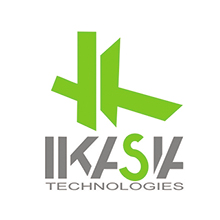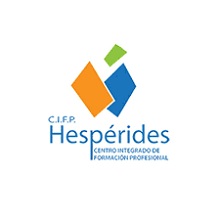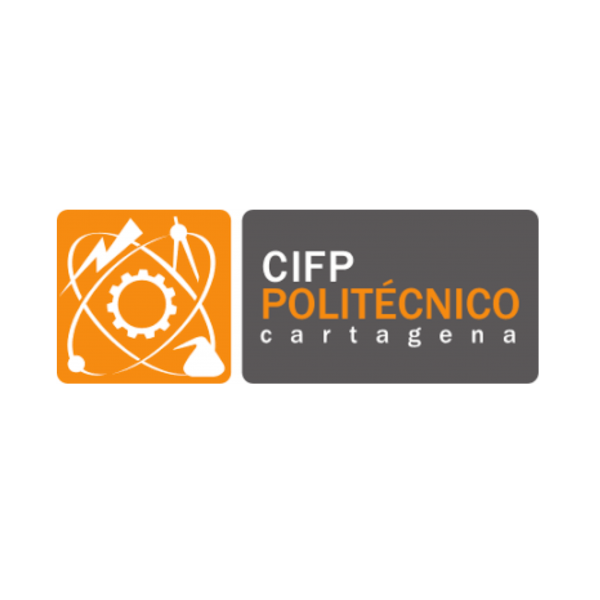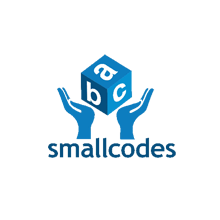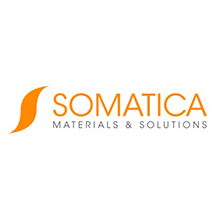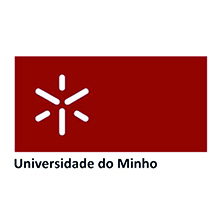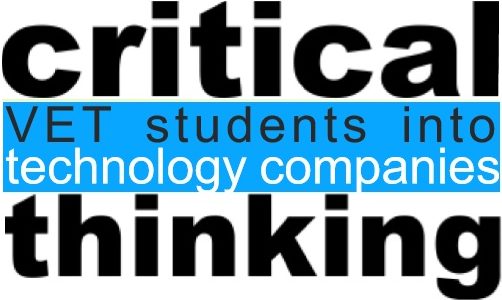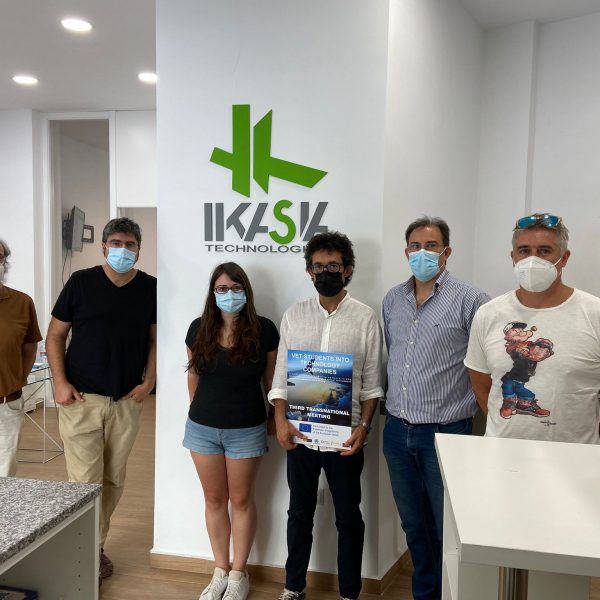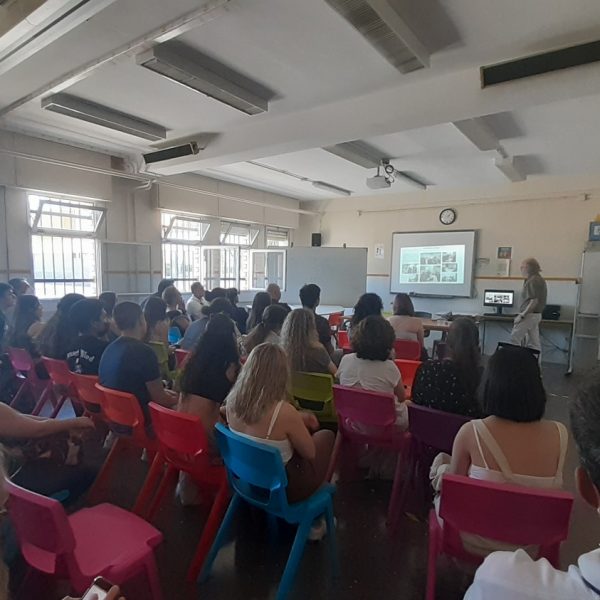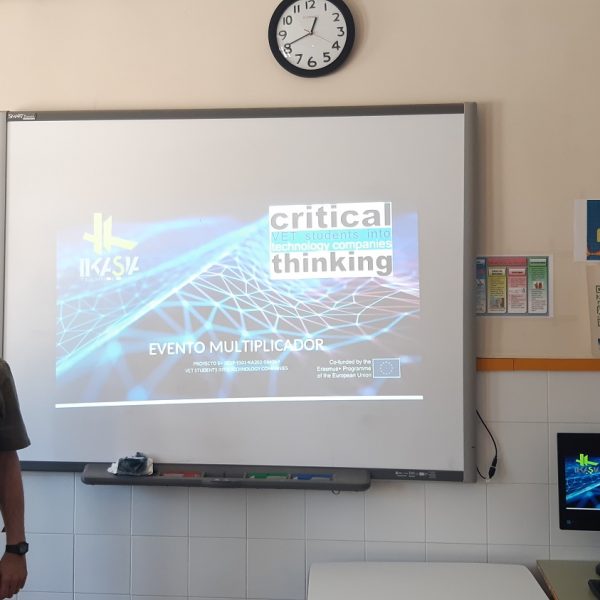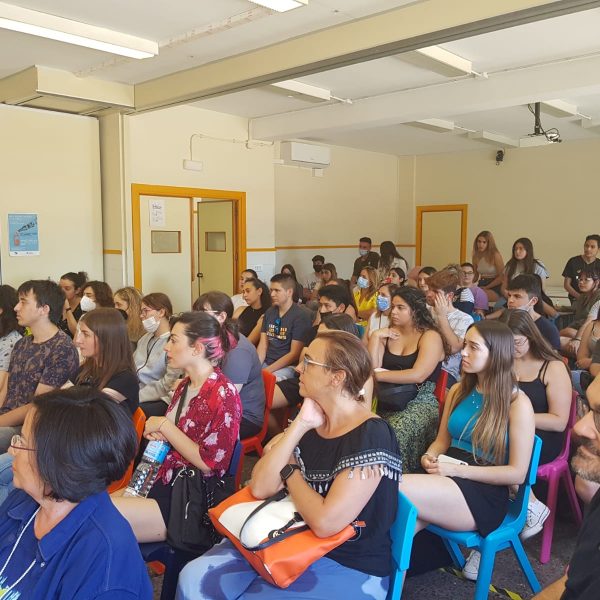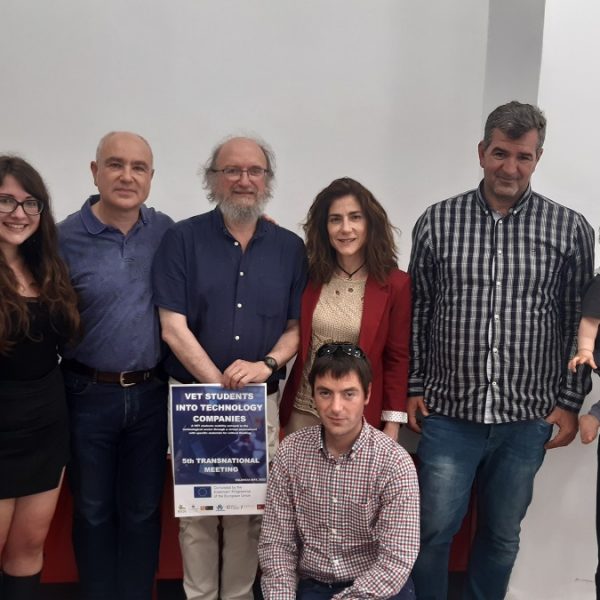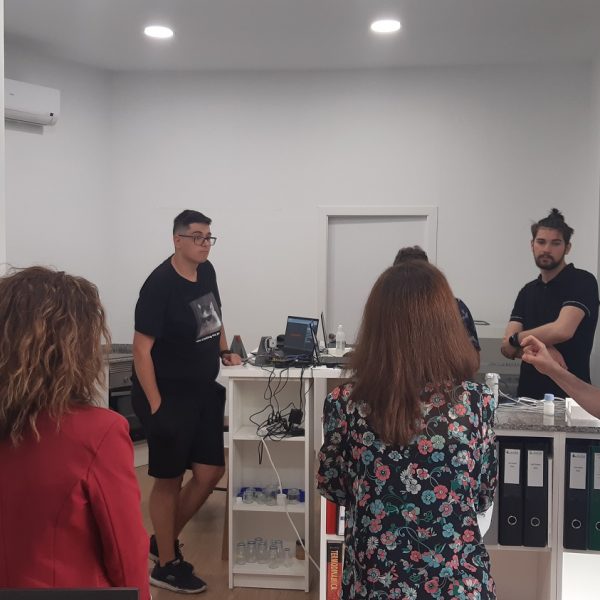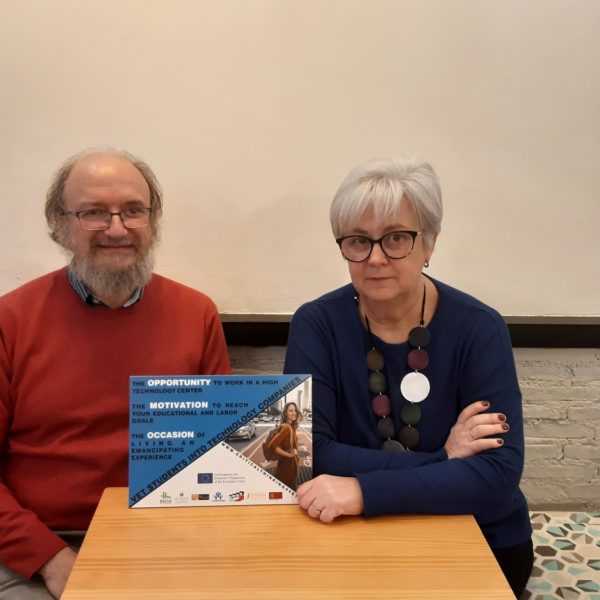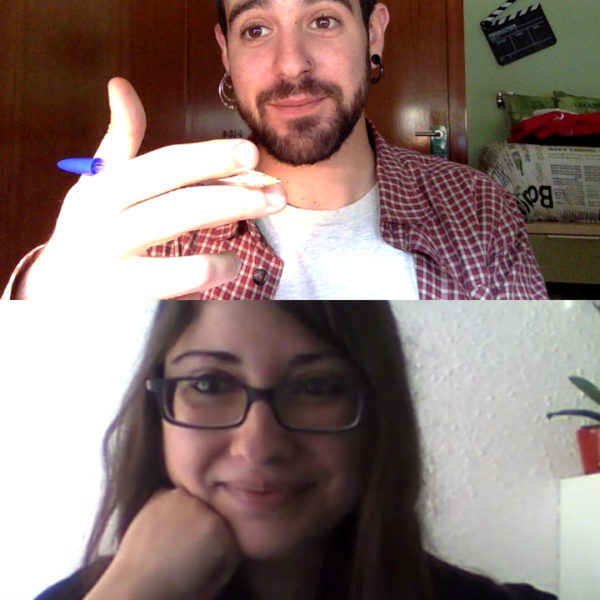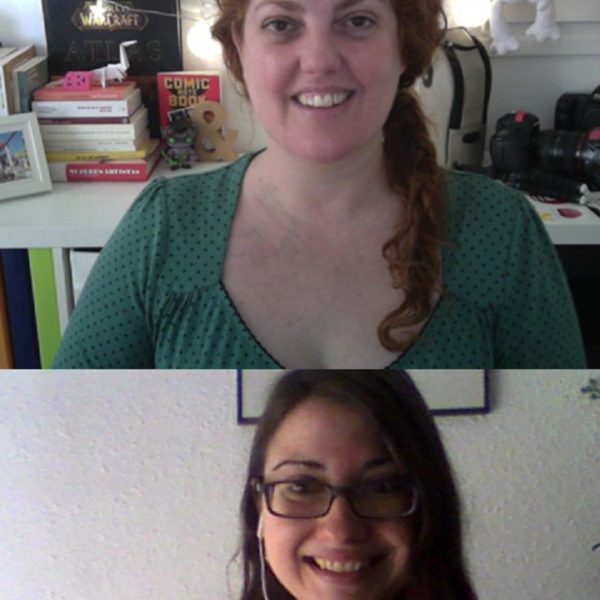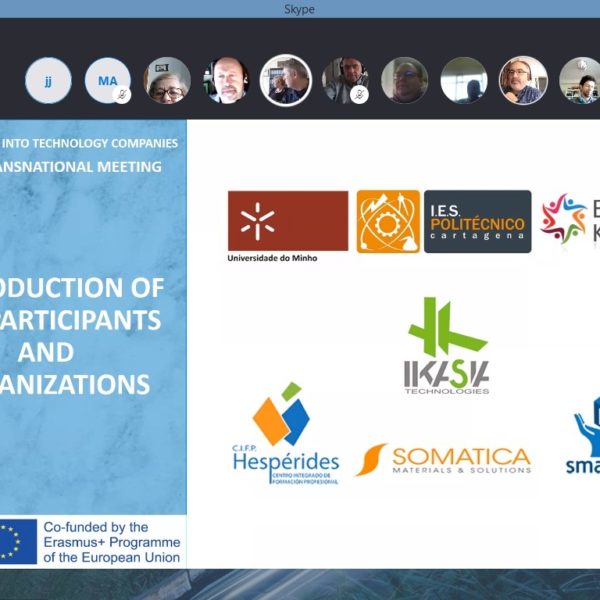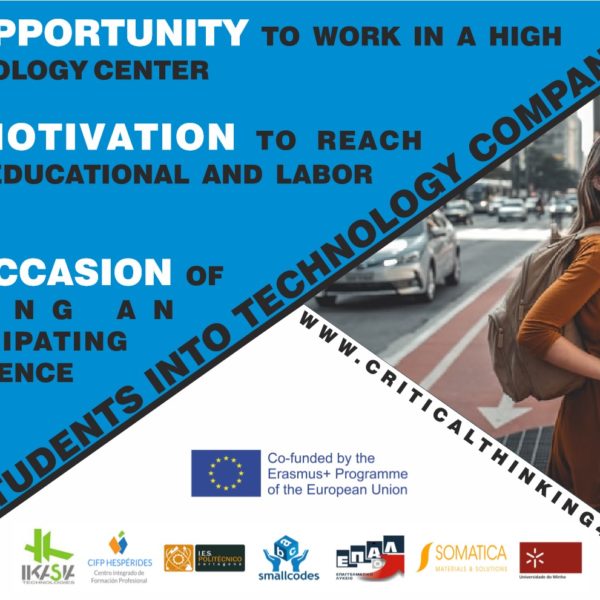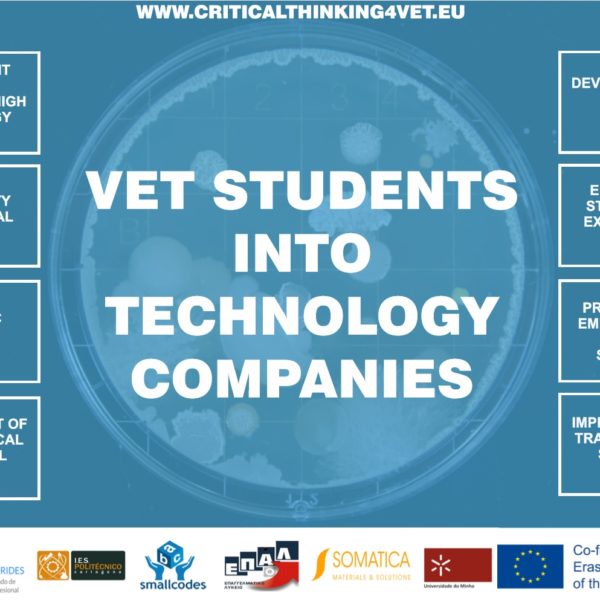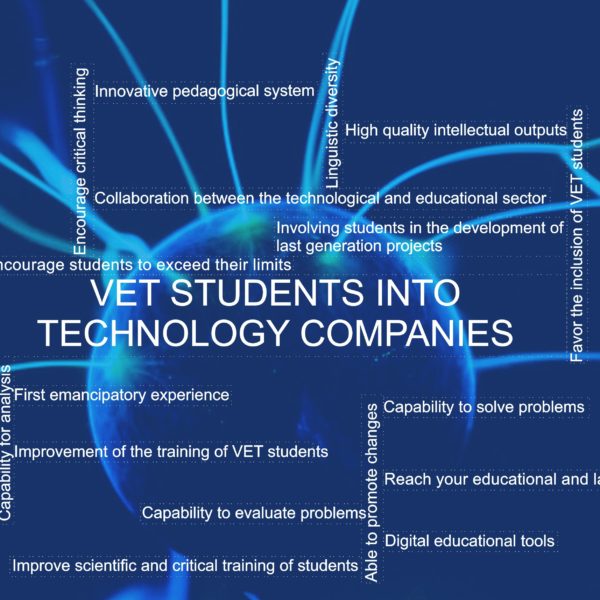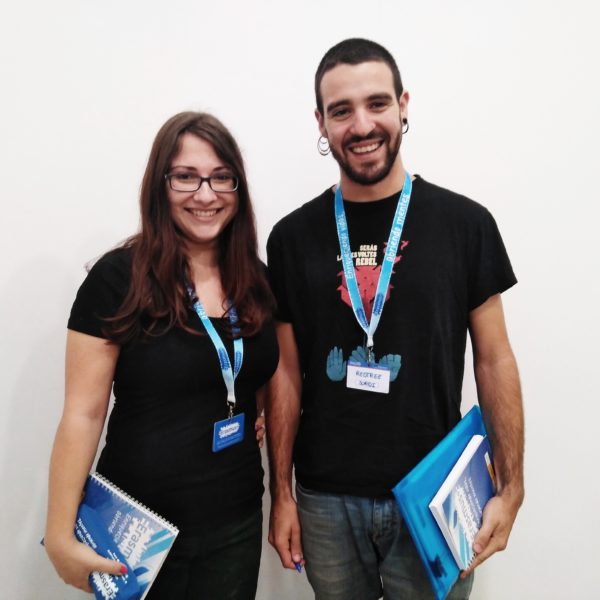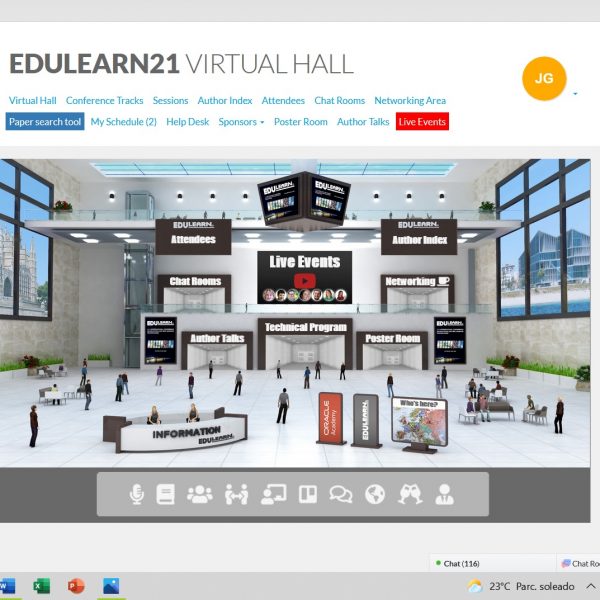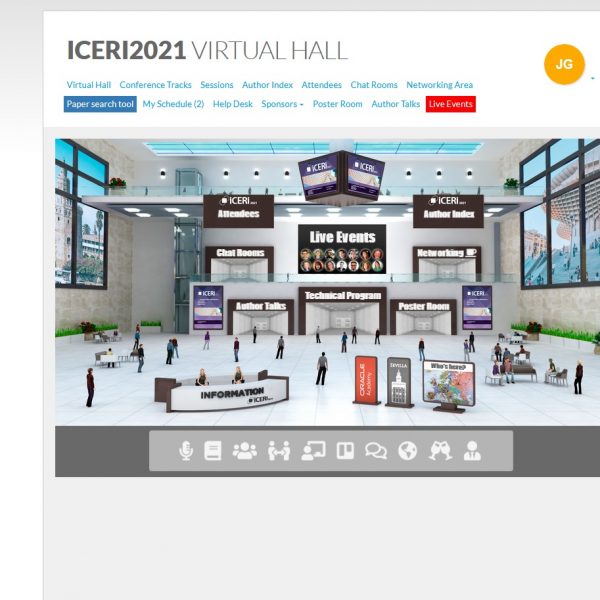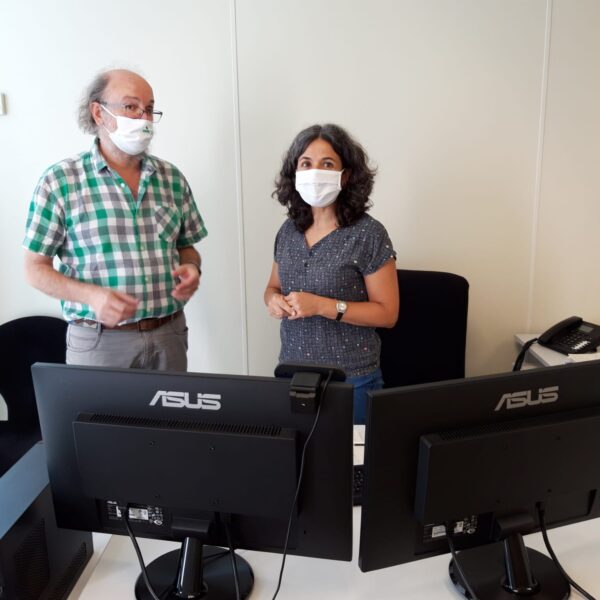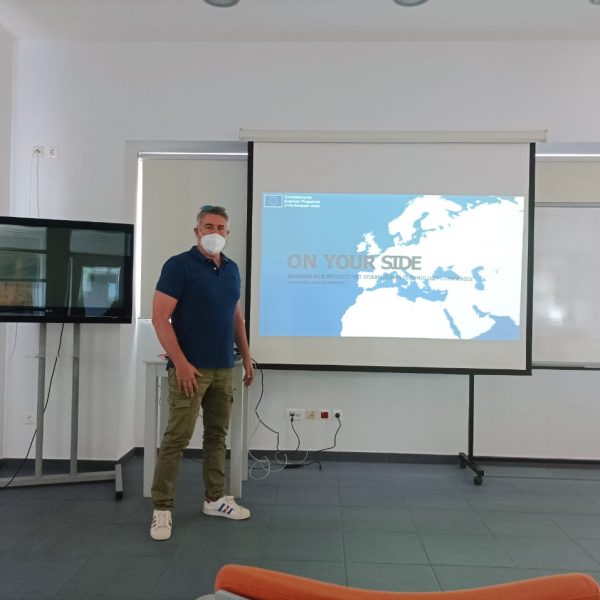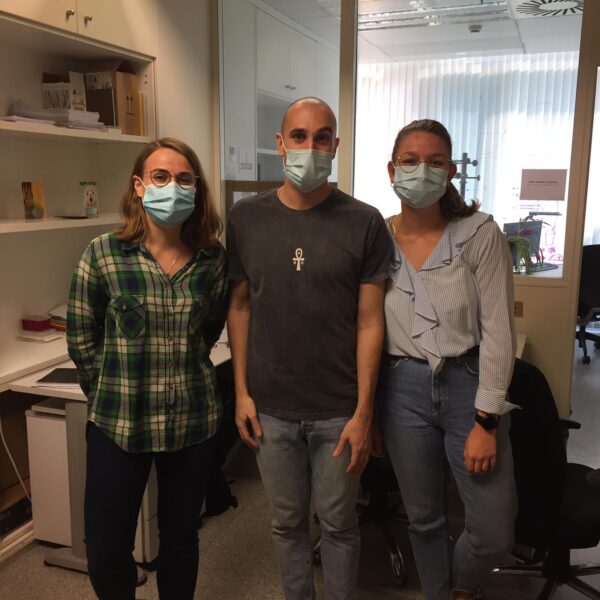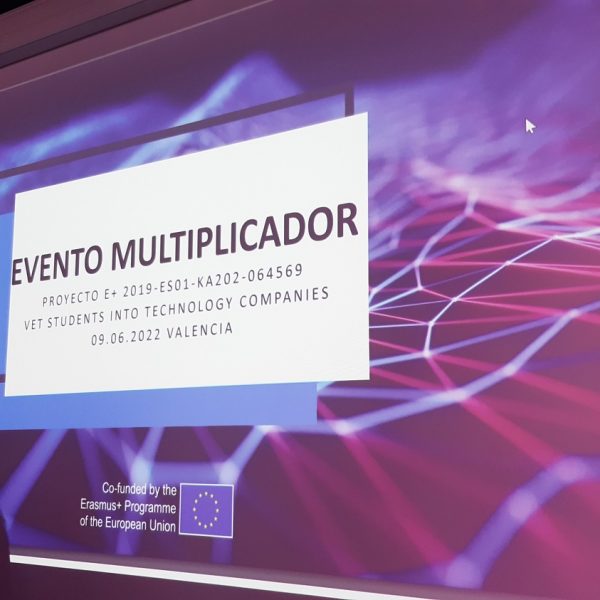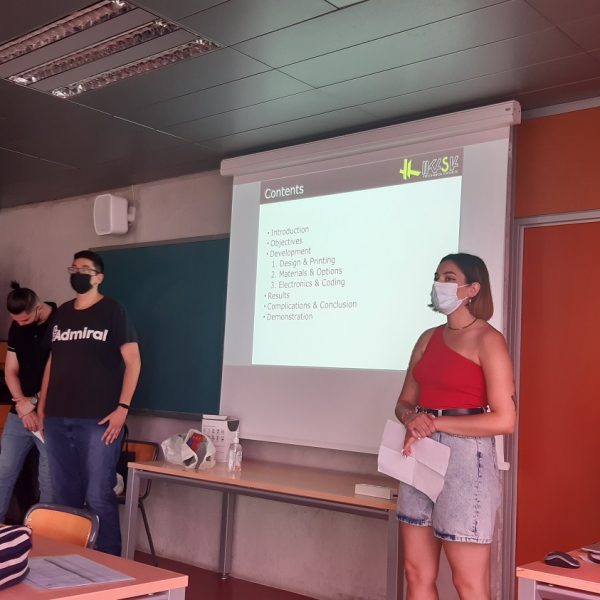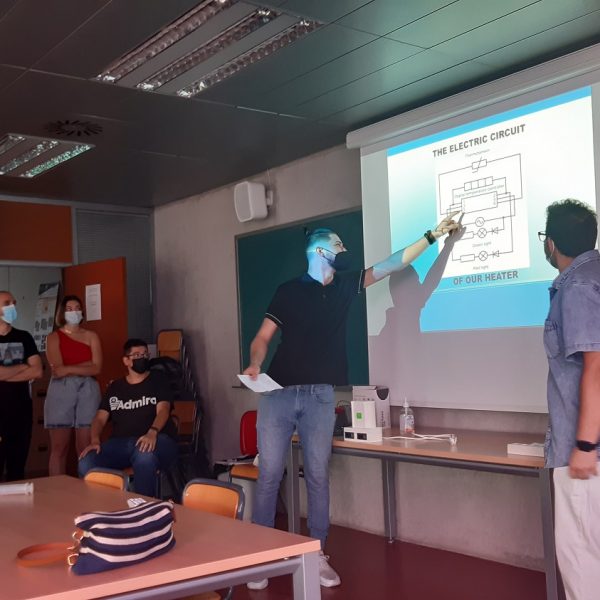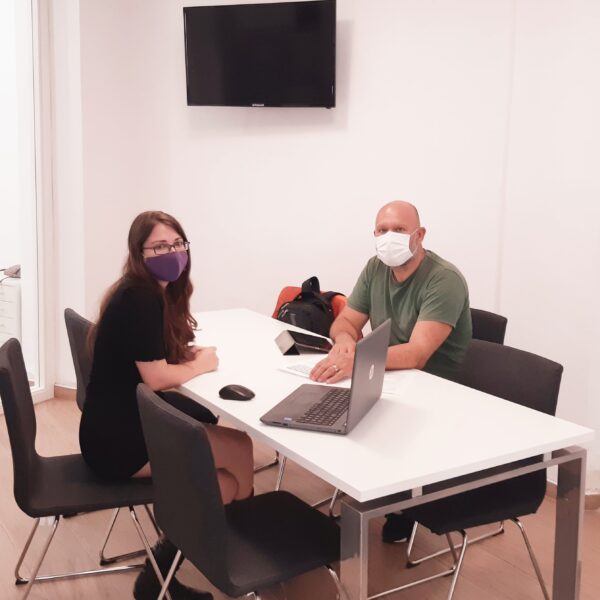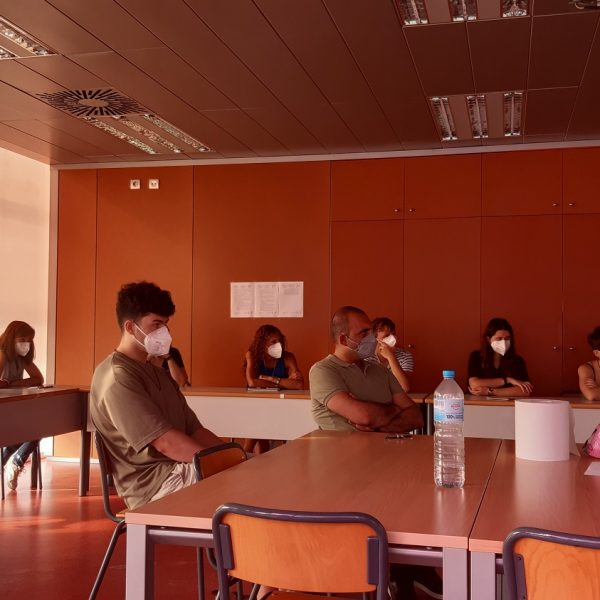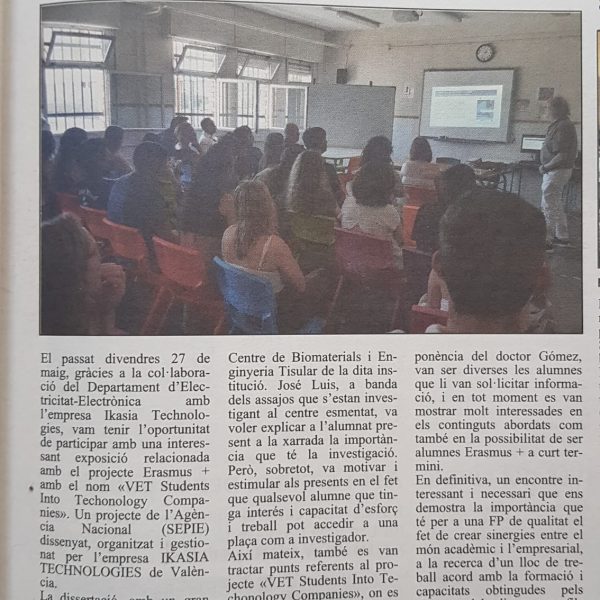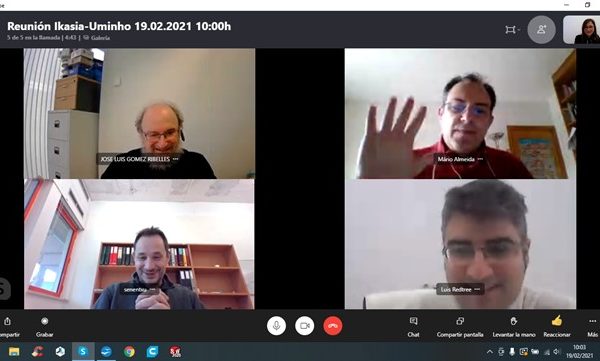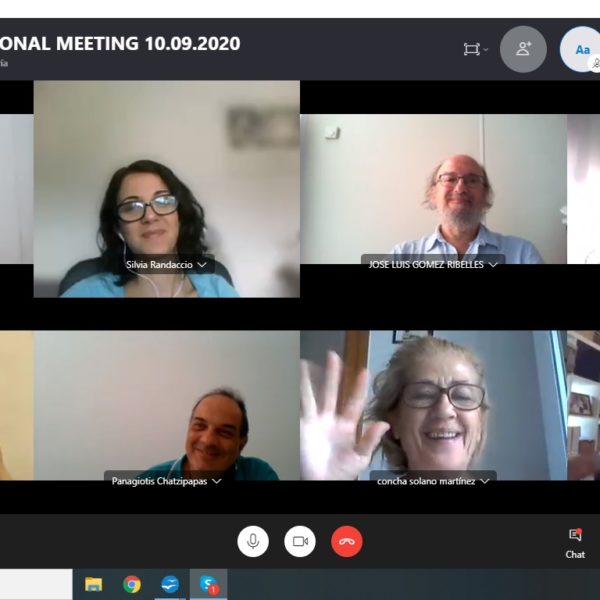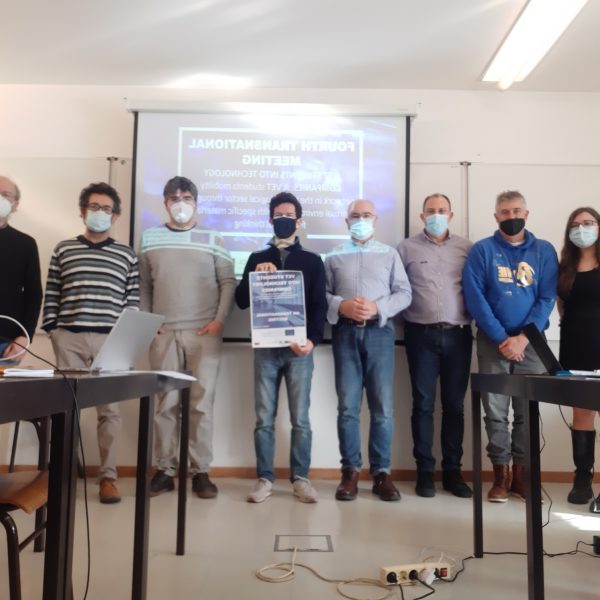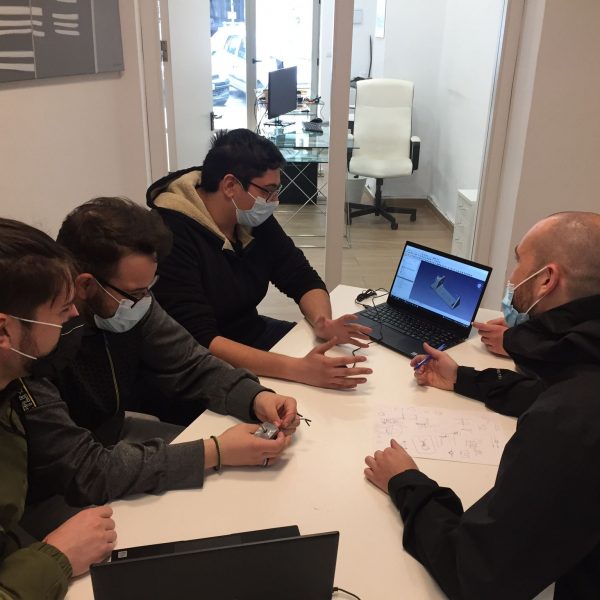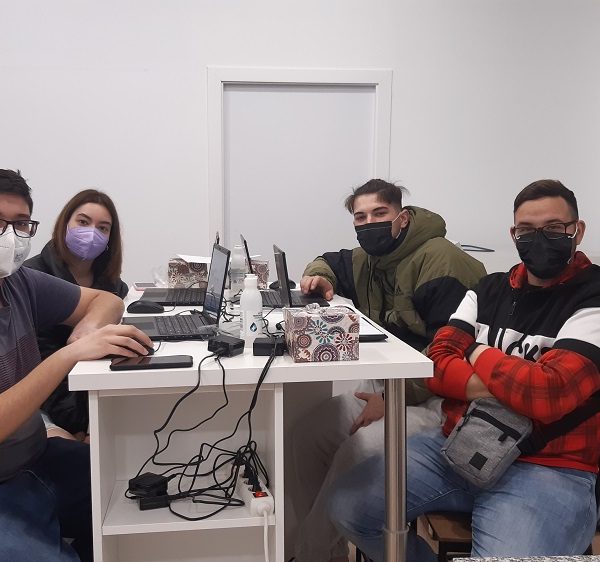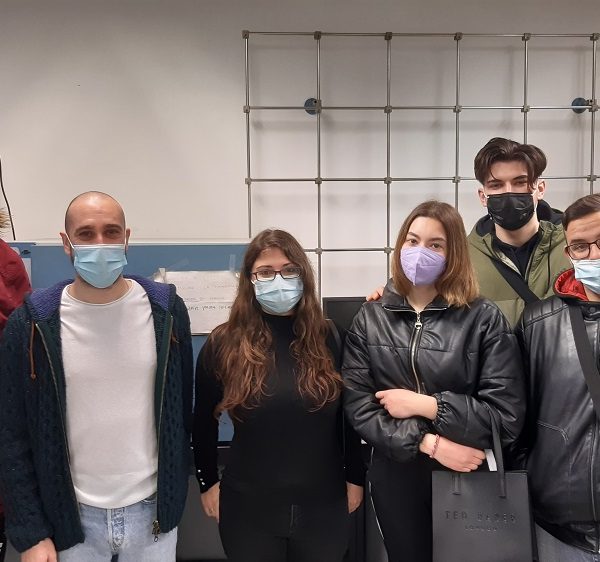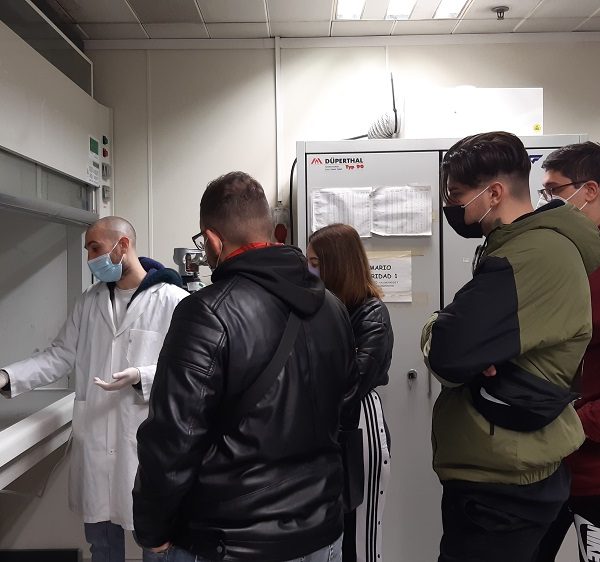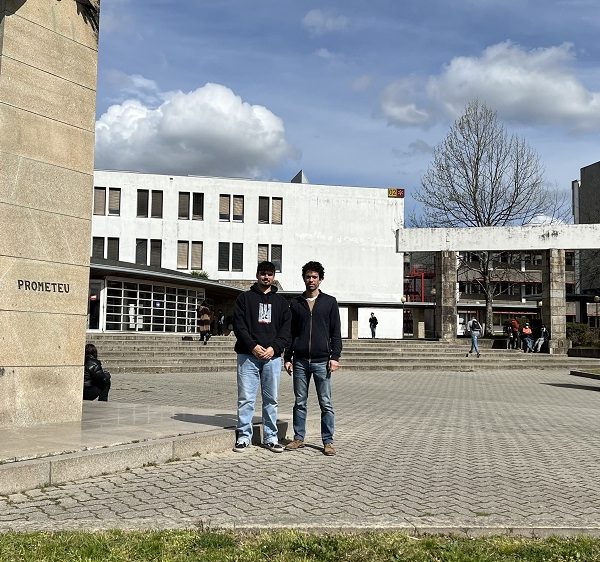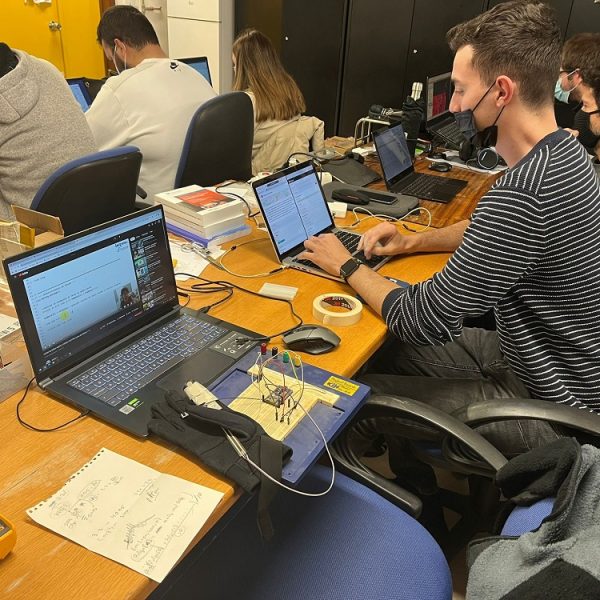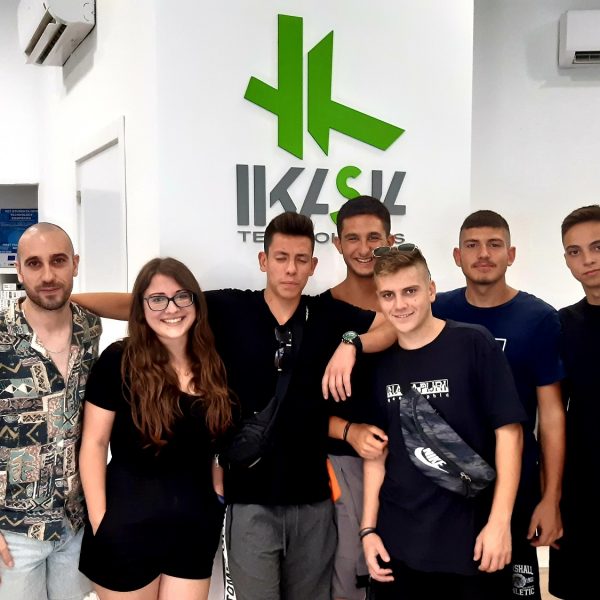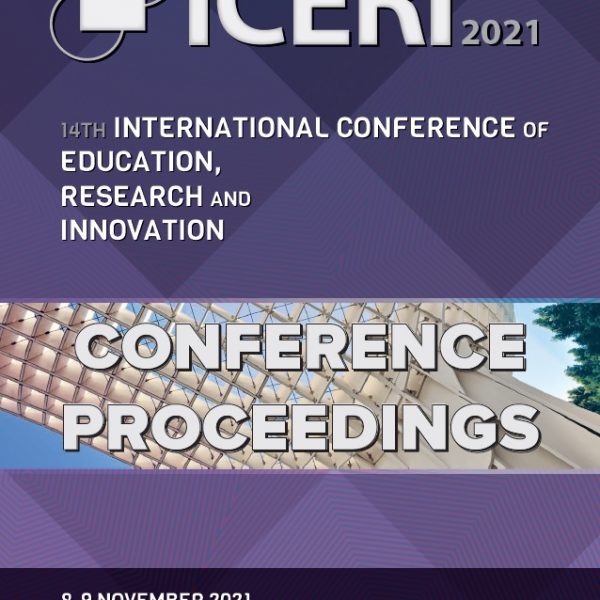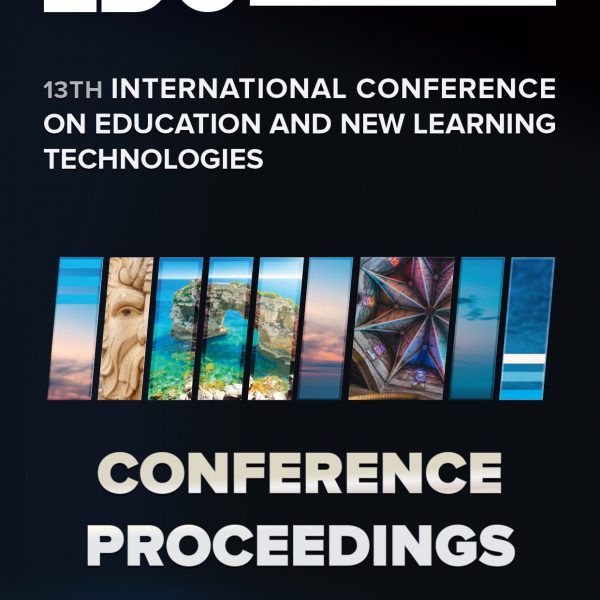| The VET education is an effective and accessible way for students at risk of social exclusion to improve their employability possibilities and their inclusion, since it allows them to technically train in a short time to perform a job and try to access the market labor. However, not even obtaining a degree aimed at professional training ensures access to the labor market or real possibilities of emancipation. The objective has been to promote the development of technological and digital skills, along with critical thinking, through the implementation of a VET student mobility network in high-tech centers, which allowing the implementation of an innovative system of internships in technological companies based on virtual tools collaborative work methodologies and virtual training materials. All this through the strategic partnership formed by several research centers, technology-based companies and VET education centers throughout Europe. This Project continues and complements the “CRITICAL THINKING AS A STEP FORWARD IN VET EDUCATION” initiative, where curricular adaptations were generated for VET centers to promote the training of their students for their work in technological centers, at the same time, the research center adapts its work processes for the inclusión of these students. In previous projects, we focused on technology centers and VET centers, allowing them to show VET students how to analyze and develop the skills to work in a technology center. We now believe that we must focus on the students themselves. We have provided them with useful tools to carry out work practices so that these young people have a first work experience in a motivating and appealing job where they have participated in the development of innovative projects and improve their curriculum before of their subsequent access to the job market. |

ACHIEVEMENTS AND BENEFICIARIES
VET students who belong to groups at risk of exclusion from particularly disadvantaged areas. This project have allowed these students get training and access to a first experience in a job motivating and attractive in the technology sector.

OUTPUTS AND OTHER RESULTS
This project have generated two high quality results with replication capability. These results have accompanied VET students during their mobility and provide them with the virtual and digital tools necessary for their job.

IMPLEMENTATION ACTIVITIES
Throughout the project, we have hold 5 transnational meetings, as well as various national activities for the development of results, bilateral meetings with experts and visibility activities.

VISIBILITY & DISSEMINATION
Thanks to the dissemination plan and the continuous work of all the partners, we have achieved great dissemination and impact by holding a multiplier event and a wide range of activities that have involved various countries at the European level.
LEARNING ACTIVITIES
The internship system in high-tech centers has the objective that VET students achieve educational success and full social inclusion through an innovative educational process.
.
EVALUATION
Evaluation and continuous monitoring is one of the most important parts of the project, as they ensure the fulfillment of the objectives, the quality of the results and the impact of the project.
PILOT TEST
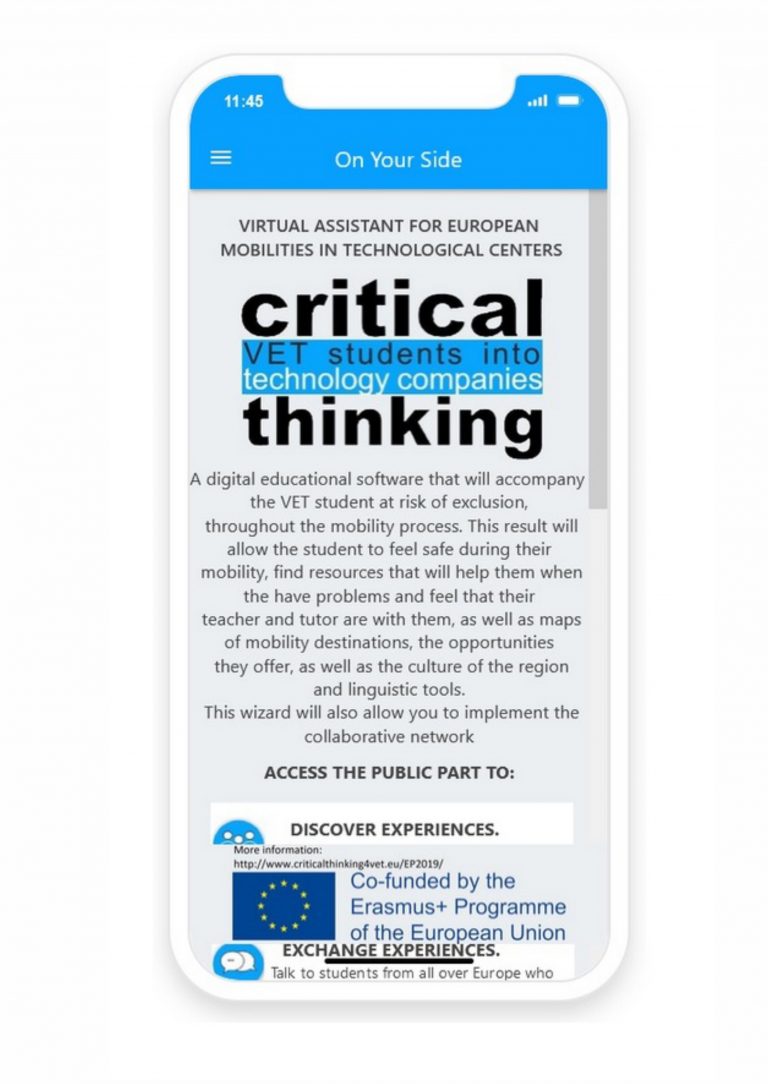
ON YOUR SIDE: VIRTUAL ASSISTANT FOR EUROPEAN MOBILITIES IN TECHNOLOGICAL CENTERS
A digital educational software that comes along with the VET student at risk of exclusion during the entire mobility process. From the moment the student considers participating in European mobility until the moment it is evaluated as a success by his teacher at the VET center. This digital environment contain all the useful information for students who want to do mobilities in the technology sector and its main.
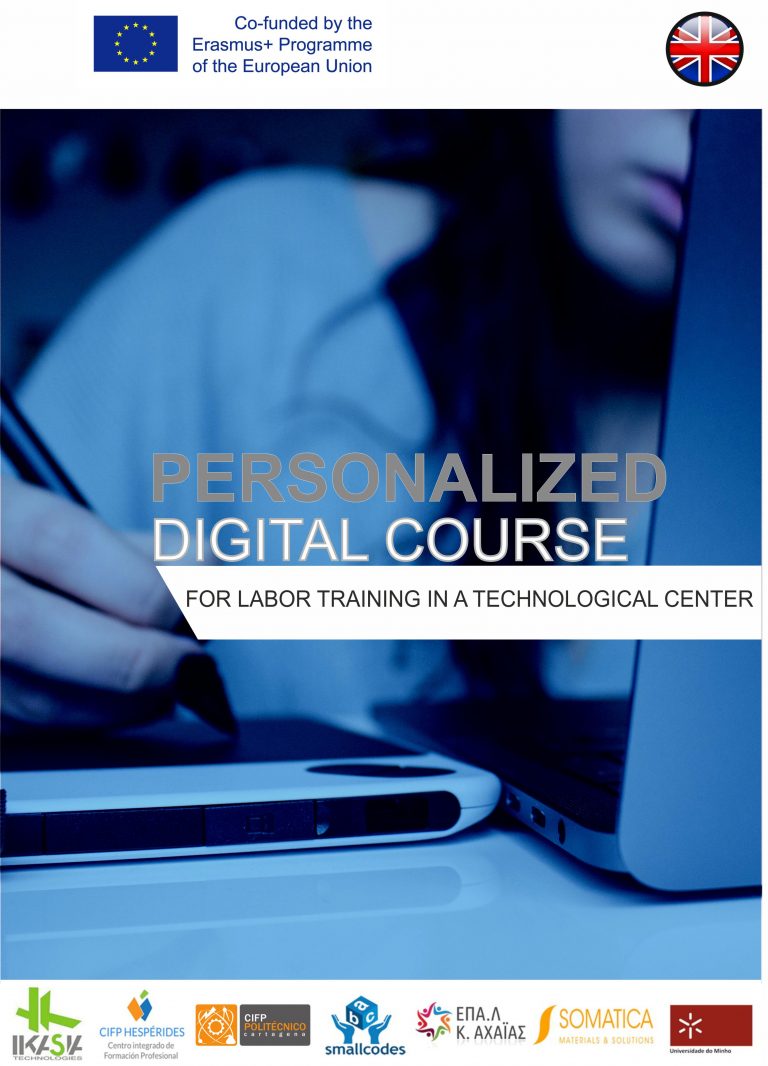
PERSONALIZED DIGITAL COURSE FOR LABOR TRAINING IN A TECHNOLOGICAL CENTER
This course, with a personalized digital format, is aimed at VET students or graduates who are going to start their professional career in a technology company, perhaps through their curricular internships or with a first employment contract.
The main objective of the course is to develop in the VET student the specific skills required by a technology company to fit into multidisciplinary teams and assume some role in cutting-edge technological innovation projects, as well as to develop critical thinking and transversal skills that guarantee their social inclusion and labor.
The internship system in high-tech centers has the objective that VET students achieve educational success and full social inclusion through an innovative educational process.
That is the reason why we gave them an opportunity to work in a high-tech center, where they can put into practice what they have learned during their VET studies but adapted to a Tech Center's demanding environment and collaborating in the most innovative projects but carrying out the tasks corresponding to their intermediate vocational training cycle.
In short, they lived an experience that changes their lives, where they not only experience the opportunities of a first job (with a salary, an experience of living autonomously and a first contact with adult life), but also the duties and obligations that this involves (seriousness, responsibility, analysis of the consequences of the decisions one makes…).
This internships system allows:
PROMOTING INCLUSION
We promote inclusion thanks to the integration of VET students at risk of exclusion in work environments where they have had the opportunity to overcome their barriers, see their skills valued and face new situations.
FIRST EMANCIPATORY EXPERIENCE
Students have had the opportunity to live autonomously for three months in another country in the network. We have given them the opportunity to have a first contact with adult life and the duties that this entails (responsibility, analysis of the consequences, paid employment in a high-tech center …).
CRITICAL THINKING
Critical thinking is a fundamental piece both for work in high-tech centers and in personal development. Therefore, it constitutes an essential part of the methodology carried out in the courses that students have followed throughout the mobilities.
CURRICULAR PROMOTION
The mobilities have offered the students the opportunity to improve their skills and abilities and focus them towards the job market, improving their curriculum and offering them a full job opportunity. We have motivated students to achieve their educational and work goals.
“I consider this project to be very interesting and important for the education of VET students. The tools that have been created in it are very useful to manage internships in research centers, as well as for the students themselves to acquire knowledge and experience by participating in research projects.”
Andrés Alba Pérez – R&D Manager at Center of biomaterials and Tissue Engineering
“I think that the results of this project are very useful for internships of VET students in research centers. The Application that has been developed in it is very important for those of us who are tutors of students in research centers, as it greatly facilitates the monitoring and management of the students’ work, but above all it allows us to help them on a day-to-day basis.”
Joaquín Ródenas Rochina– PhD Higher laboratory technician and researcher at Center of biomaterials and Tissue Engineering
“Participating in internships in research centers and technology companies located in a different country is a unique and very important experience for the training and employability of all students. I believe that the results created in this project are very beneficial for both students and tutors to carry out this experience successfully.”
Inma García Briega – Research Laboratory Technician at Center of biomaterials and Tissue Engineering
“After having learned about the results of the project “VET STUDENTS INTO TECHNOLOGY COMPANIES” coordinated by Ikasia Technologies Sl, I consider that they are of great interest and usefulness to carry out internships for VET students in research centers and technology companies. It is very important to thank the opportunity to get involved in research projects.”
José Antonio Gómez Tejedor – Center of biomaterials and Tissue Engineering Director
“Student participation in research projects is key to their training and employability. In this project, results have been created that really help VET students to be trained and access tools that give them a real opportunity to work in research centers and technology companies.”
Gloria Gallego Ferrer – Professor at Department of Applied Thermodynamics ETSII Industrial
“I think this is a very interesting project with a lot of value. One of the most important factors for VET students education are internships in companies, and I think that the results created in the project are truly useful tools for the students as well as for the teachers themselves. For teachers, it is very important to have tools that facilitate the management and monitoring of students during internships in companies.”
Florentina Celdrán Martínez – Teacher at the Isaac Peral educational center
“This is my experience at IKASIA technologies . First of all, i want to thank you about this opportunity you gave to us and the experience we had here is very important for our future. The tasks we had done help us to think more and learn many new things for our knowledge. Lastly, the tutors here were very kind and helpful with us and learn to us many things for the tasks we have to done ,
Thank you for all, Vasiliki Kostopoulou!”
Vasiliki Kostopoulou – VET student
“During my stay in Valencia and during my work at IKASIA, I gained knowledge and experience in many subjects, which I am very happy and fortunate to be able to have and I am sure it will help me in my future work and daily life. At first, I felt completely lost, but with the help of our mentors everything started to make sense and I could keep working on our project. Practicing critical thinking on a daily basis assisted on my personal growth and developing even more my problem solving skills.”
Georgios Kostopoulos – VET student
“My experience through this job will stay with me because it was something new and something very nice we spent three months who will follow me for all the next years it was a life experience.I would like to come back to work for Ikasia”
Aggelos Tsalikis – VET student
“We had a great time, all the conditions were very good, all the people were good, there was good communication with all the people in the company, nice environment, I would love to work with them.”
Anxheli Sema – VET student
“The results of this project are very relevant to enhance the employability of VET students in the technology sector. Developing critical thinking is key for students who are going to participate in research projects.”
Isabel Tort Ausina – Physics Department Professor at ETS Building Engineering

Luis Gómez Estrada
Luis Gómez Estrada, was born in Valencia in 1980, with a Bachelor’s degree in Industrial Design by “Universidad Politécnica de Valencia”, experienced in the research field at the “Instituto de Biomecánica de Valencia” (UPV). Actually is CEO of Ikasia technologies and has experience as head of the 3D department in an engineering services companies. He has a broad experience in European and international project’s management and coordination.

José Luis Gómez Ribelles
José Luis Gómez Ribelles is a full professor at the Universitat Politècnica de València, carrying out his research work at the Centre for Biomaterials and Tissue Engineering, CBIT, of that university. He is currently the principal investigator of one of the research units of the CIBER-BBN of the Instituto de Salud Carlos III. His current line of research focuses on the development of biomaterials for tissue engineering and regenerative medicine.

Mª Concepción Solano Martínez
With a degree in English and German studies (University of Valencia, 1980), I have worked as a secondary school teacher (retired 2018). I have always had a strong interest in methodology. I worked for a school term in Beaconsfield grammar School as an exchange teacher. Member of the work team for the elaboration of the curriculum of the program “Integrated curriculum mec-British council”. I have also been a teacher trainer for the Teaches and Resources Centre in Murcia.
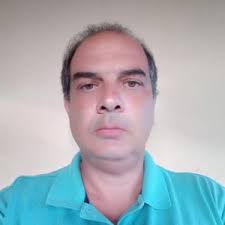
Panagiotis Chatzipapas
Panagiotis Chatzipapas is agronomist. He studied Agricultural Biotechnology at Agricultural University of Athens and he did his Master in Applied Biology and Biotechnology at faculty of Biology in the University of Patras. He teaches agriculture at 1st Epagelmatiko Lykeio Kato Achaias and he is the head of Agriculture, ICT and Economy sector. A very important part of his activity in VET, is to design and implement training projects for students and teachers in VET.
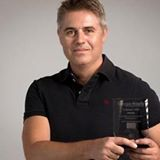
Panagiotis Karampelas
He works as a teacher in secondary technical education with specialization in computers and design implementation circuits and also the design and development of algorithmic structures. Now days is the Headmaster in VET Secondary School. He has 2 Masters, Ecomomics in Education and In School Managment.
Also, Manage and Organize Erasmus Plus Projects (KA1-KA2) and E-Twinning.
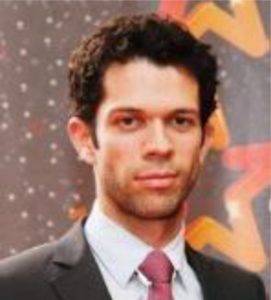
Jivago Nunes
Jivago Nunes have a degree on Optoelectronics and Lasers, and a Master in Materials Engineering, and worked as a scientific researcher during 5 years. After that, he has been the CTO of the company Somatica, Materials and Solutions, Lda. for the last 10 years and, as an entrepreneur, he have created 5 companies during the last 7 years.
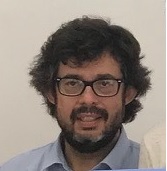
Carlo Zoli
Electronic Engineer; CEO of Smallcodes Ltd. Founder of Smallcodes Ltd as a social and technological company focused on education and linguistic technologies, with a special interest in minority languages and cultures, dialectology studies and historical linguistics.

Antonio Arroyo Jerez
Qualified in business sciences and with a degree in business management and administration from the UPCT. For 23 years he worked as a workshop technical teacher of VET in the specialty of electronic equipment. He has been a secondary school teacher of the FOL specialty since 2003. He has also held various positions in educational centers: for 7 years he was the secretary of the IES Almirante Bastarreche and for 11 years he was the headmaster of this same center. Currently he is the director of the CIFP HESPÉRIDES which he has been running for 10 years. In addition, throughout his professional career, he has worked as a tutor teacher, head of department , coordinator of different projects, as well as participated in courses, seminars and conferences on teaching and technical updating.
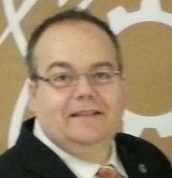
Luis David Alonso
He has a degree in English Philology and a degree completion from the University of Swansea (Wales); also a UMU(University of Murcia) Doctorate Master. He has been working as a foreign language teacher in private companies for 2 years. For the last 20 years he has been a teacher at state schools. He is currently deputy head of studies; coordinator of international programs and a teacher in the English department of the IES POLITÉCNICO DE CARTAGENA.
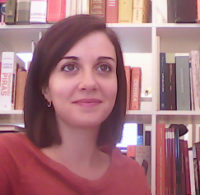
Silvia Randaccio
Silvia Randaccio has a degree in European and Extra-European languages, with a thesis in computational linguistics for the Arabic language.
She works for the ICT company Smallcodes, based in Florence, Italy, which deals with linguistic policies and digital resources for minority languages.
She currently follows numerous projects for the development of linguistic software, teaching materials, e-learning platforms and digital archives, for minority languages but also for other product sectors. She also manages digital marketing, SEO and web graphics.
She has also undertaken several external collaborations as a consultant, teacher and project partner for various entities that have allowed her to learn about new realities and work sectors.
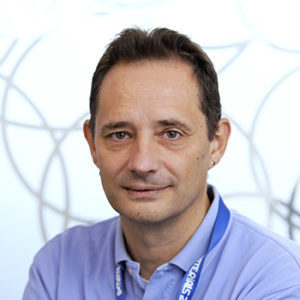
Senentxu Lanceros
Lanceros-Mendez is Ikerbasque Professor at the BCMaterials, Basque Center for Materials, Applications and Nanostructures, Leioa, Spain, where he is the Scientific Director. He is Associate Professor at the Physics Department of UMinho, Portugal, where also belongs to the Center of Physics. From 2012 to 2014 he was also Associate Researcher at the INL. His work is focused in the area of smart and multifunctional materials for sensors and actuators, energy and biomedical applications.

Luis Martins
Luis Martins is a Phd Student at the Universitat Politècnica de València. After graduating Applied Biology from the Minho University took a masters in Biophysics and Bionanosystems on the same university. Additionally, has diplomas in Pedagogic Competences and Advanced English from Cambridge University and competences in computer aided design, 3d printing and basic programming, apart from the general ability with technology and productivity tools one expects from a high grade student. Luis has experience in tutoring, orienting students projects or laboratorial practices. On the other hand he had given private tuttoring several times in science fields and english mostly to university students. Luis if fluent in English, Portuguese and Spanish having some basic knoledge of French.

Laura Gómez Estrada
Qualified as a VET Technician, Laura was incorporated in Ikasia in 2018 in the scientific and educational project development team. Having exhibited organization and managing skills, has since been responsible for projects coordinated by Ikasia included in the Erasmus + Program in the field of professional education. Laura is a young, easygoing, and hardworking person. Her diverse professional parkours led to the development of a broad range of skills, from organization to and interpersonal skills, which she transposes to her professional everyday life.
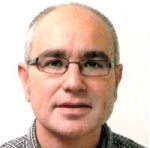
Antonio Soriano Martínez
Industrial technical engineer in the specialty of industrial electronics. He has been a teacher for 20 years. In addition, he has 7 years of professional experience in private companies (naval and chemical industry) as a process automation technician. He is a deputy head of studies and teaches Electrotechnical and Automated Systems at the IES POLITÉCNICO DE CARTAGENA.
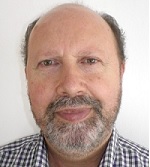
Ángel Albaladejo Fernández
Industrial Technical Engineer in the specialty of Industrial Electronics. A teacher for 36 years, he is a Deputy head at the IES POLITÉCNICO DE CARTAGENA, as well as a vocational training teacher (VET) of the Department of electricity-electronics in the specialty of electronic systems.

António Mário Almeida
António Mário Almeida has a degree in Physics from University of Coimbra (1990), where he has got a masters in Technological Physics (1994). Since 2003 he is an Assistant Professor in the Department of Physics at University of Minho, where he completed his PhD in Computational Physics. His research interests are in the domain of computational physics, namely concerning quantum methods of molecular dynamics and materials properties.

Luca Pietra
Engineer and new member of SMALLCODES through ScarabLab. He is currently involved in deepening his knowledge of the various programming languages and supporting senior programmers in the implementation of software for health informatics.
